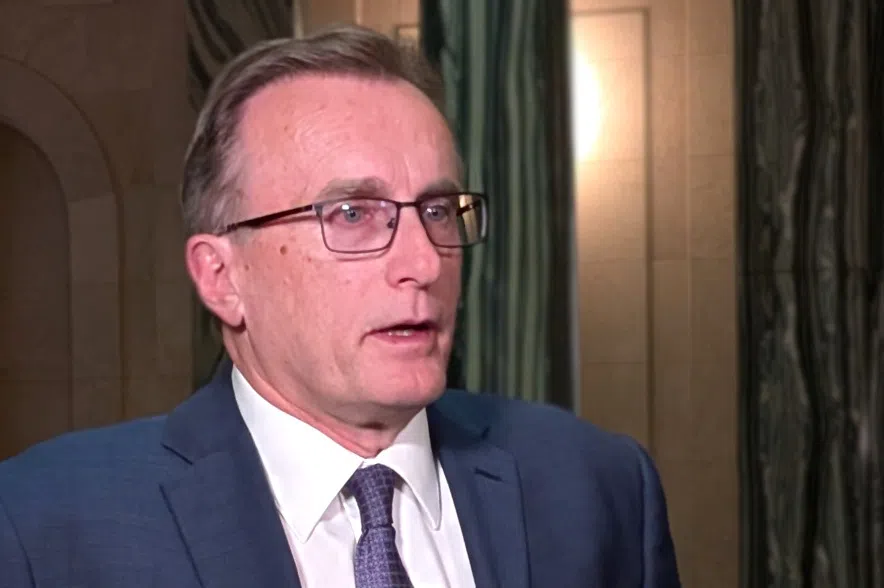After a weekend with an independence rally in Alberta and Premier Danielle Smith promising a separation referendum if signatures warrant it, the Saskatchewan NDP came out again on Monday to call for clearer answers on separatism from the Sask. Party government.
During question period, several NDP MLAs asked questions of the premier, with most of them boiling down to whether he would quash talk of separation in Saskatchewan, whether he would commit to not allowing a referendum on separation to happen, and what his answer would be if there were such a referendum.
Read more:
- Sask. NDP questions Scott Moe’s stance on western separatism
- Premier Scott Moe looks for reset on Sask. relationship with Ottawa
- Western alienation plays key role for Sask. in 2025 federal election campaign
“It’s a pretty straightforward question that they seem unwilling or incapable of answering,” said Aleana Young, the NDP’s jobs and economy critic, after question period.
Premier Scott Moe didn’t rise in the assembly to answer any of the questions, and no one from the government was made available to answer questions from media afterward.
Deputy Premier Jim Reiter took the NDP’s volleys from the other side of he house. He said several times that neither he, the premier, nor the government are interested in separation.
“In fact, one of the founding principles of the Saskatchewan Party speaks to exactly that; it speaks about a growing Saskatchewan within a strong and growing Canada,” said Reiter.
Reiter said the way Saskatchewan has been treated in confederation has contributed to feelings of alienation, but added that he and the government are hoping for a different relationship with the new prime minister, Mark Carney.
Reiter did not specifically say whether or not the provincial government would allow a referendum to happen – whether brought from outside or inside the government – or whether the Moe government would follow the lead of the Alberta government in lowering the threshold to make such a vote easier to achieve.
When Reiter responded to such questions from the NDP, he said the government members believe they represent all citizens of the province, and that the government isn’t interested in quashing free speech.
“Whether we agree with their opinion or not, they have a right to voice their opinion, Mr. Speaker, we’re not going to silence them like members opposite say they would,” said Reiter.
Young wasn’t happy with the responses from the deputy premier and said Moe has been dodging questions about his opinion on the subject and how he would vote in a referendum.
“This is an incredibly low bar to step over for any leader in Canada. I think he owes the people of Saskatchewan some transparency and some accountability,” said Young.
Young said she thinks it’s important for people in western Canada to have a voice, and for people to have access to plebiscite legislation.
“I think the question of whether to secede from Canada is a pretty big question, and this is one that we have seen this premier, and apparently now his cabinet, unable to answer in a straightforward fashion,” said Young.
One of the ways a vote could be triggered is by the question being raised by the premier unilaterally, which is of particular concern to the NDP. Young said she’s seen this government act against the best interests of the people of Saskatchewan in the past.
“The premier could end this speculation. He could kill this dead by simply saying ‘No. I would vote no in a referendum on whether or not to leave Canada,’” she said.
Young dismissed the idea that western separation is getting more and more oxygen because the NDP keeps talking about it, as Reiter suggested in his remarks in question period. She said the opposition is still talking about it because the government hasn’t said “with its full chest” that its members would vote ‘no’ on the question of leaving Canada.












